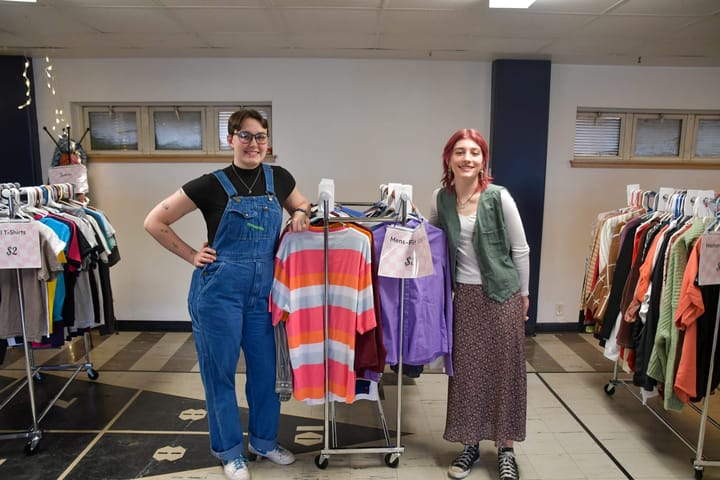New Journey Scholars program grants guidance to systemically nondominant students
Journey Scholars is a new Augustana program that provides systemically nondominant first-year students with resources, peer mentors and advice to assist in their comfort and success.
About 30 Native American, Hispanic, first-generation, LGBTQ+ and students of color chose to join the program.
“Sometimes, people want to feel like there are others like them that understand what they went through,” Willette Capers, director of diversity, equity and inclusion said. “Starting this was to provide a safe or brave space to champion that.”
The scholars work closely with Capers, Dean of Students Mark Blackburn and Corey Kopp, director of Campus Life.
Billie Streufert and Travis Ahlers of the Student Success Center teach a one credit course on Tuesdays and Thursdays at 10 a.m. for the Journey Scholars called “Becoming a Master student.” Hannah Boggs, a Journey Scholar majoring in business and communications, said they learn about study strategies and campus resources like the Writing Center.
The scholars also received a $200 textbook stipend, Boggs said.
Capers said the main goal of the program is to provide connections, both with fellow students and with resources.
“I think it provides an avenue for retention because there is that connection piece that’s built in early,” Capers said.
Through peer mentorship, the Journey Scholars have a social support system built in before they arrive on campus, Capers said.
“It’s definitely nice to get to know other students who are experiencing the exact same thing,” Boggs said. “Like, I’m the first kid in my family to go to college.”
On Thursday, Aug. 22, the Journey Scholars moved into their dorms and parted with their families two days before the rest of the freshman class. Capers said they spent the extra time listening to speakers talk about diversity, success and different majors.
The scholars and their mentors toured the Washington Pavillion, went to Thunder Road and ate ice cream.
Peer mentorship from five upperclassmen is an important part of the program, Capers said.
Every week or two, Hunter Lipinski, a junior peer mentor, said he meets with one of the seven Journey Scholars he mentors, just to check in and maintain their friendship. More often, he said he chats with them around campus or texts them to check in.
“I like to put it simply as being their friend, being a resource here on campus,” Lipinski said.
Boggs said she has met with her peer mentor, junior Amara Rodis, once so far this semester.
“I feel like if I still have questions right now I could definitely text her and get some advice or direction in where to go,” Boggs said.
Capers said she hopes to improve the program next year and include an application process, accepting about 30 students again.
“I want to ensure that these students feel like they have a home, that they have a space,” Capers said. “This is a place where they can thrive, be great and be themselves.”



